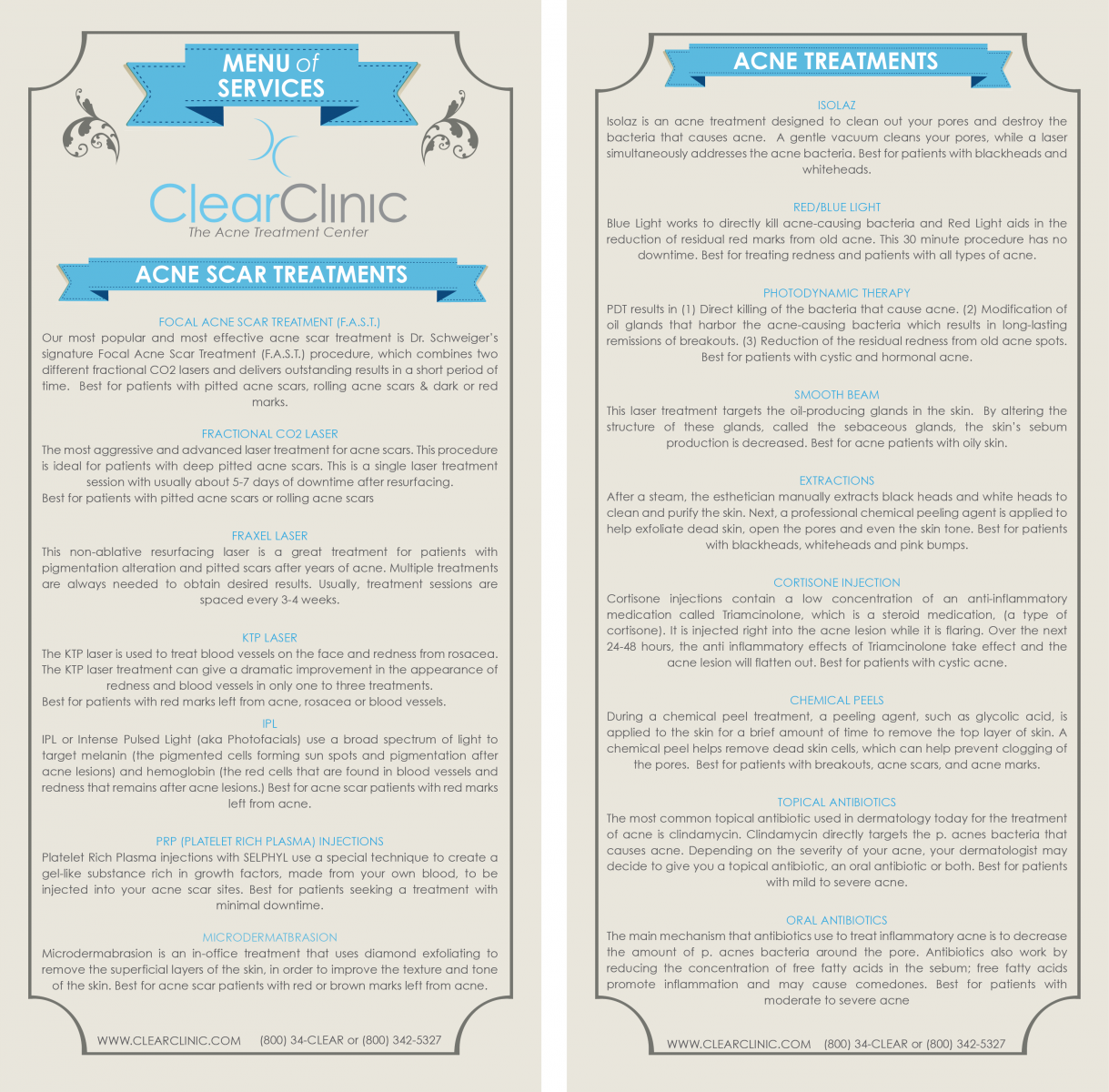Acne Myth #1: You can get acne from sweating
Truth: No, sweating does not cause acne. Sweat glands are not the same as oil pores. While sweat alone cannot cause acne, there is a condition called acne mechanica, which is a form of acne that is caused by a combination of heat, friction and covered skin. It’s often found on athletes who sweat under their helmets. Other culprits of acne mechanica include tight clothing, snug backpack straps, and headbands worn for long periods of time.
Acne Myth #2: Eating junk foods will make you break out
Truth: The dermatological community has long dispelled the idea that junk foods, such as French fries and chocolate, cause acne. However, there is new research that’s links diet to acne. Foods with a high-glycemic level (white breads sugary drinks, processed foods) are thought to trigger the production of androgens, a hormone responsible for oil production. A preliminary study also showed a link between pure chocolate and acne. The ingredients caffeine and theobromine, both found in chocolate, are thought to worsen acne. More research needs to be done in the area of acne and diet, but until then it’s best to follow a low-carbohydrate, low-sugar diet if you’re looking to keep your skin acne-free.
Acne Myth #3: Washing your face more frequently prevents breakouts
Truth: Actually, over-washing your face can make acne worse. While washing your face is an important part of every good skincare regimen, there is no need to do it more than twice a day—in the morning and in the evening. Washing your face any more than that can cause drying of the skin, which can cause skin to produce more oil to overcompensate.
Acne Myth #4: Sun exposure helps clear up acne
Truth: While “drying out acne” in the sun may seem like a good idea, it’s not. The sun not only causes premature aging, but it does nothing to help clear up or heal acne. A suntan may help mask the redness of zits, but it’s only temporary. Once the tan fades, the pimples can come back in full force thanks to ultraviolet light exposure. Additionally, some acne prescription medications have negative reactions with sunlight, so it’s important to wear SPF and avoid the sun as much as possible if you want to clear your skin. There are other light treatments, such as blue light and red light therapy that do actually help with acne.
Acne Myth #5: Shaving causes or worsens acne
Truth: Shaving itself will not cause acne. But if you suffer from acne, you need to be careful while you shave. It’s important to use the proper shaving technique as well as the right tools. Make sure to use a protective shaving cream on the face before hand as well as a sharp blade.
Acne Myth #6: Wearing makeup will make you breakout
Truth: Makeup itself should not cause acne breakouts. However, it’s extremely important to use the correct makeup for your skin and to wash it off thoroughly every evening. If your skin is acne-prone, look for makeup that is noncomedogenic, which simply means it will not block pores. Read more on how to smartly apply makeup if you have acne.
Acne Myth #7: Applying toothpaste to a zit will clear it up
Truth: Coping with breakouts is not easy. Some of us will try anything to clear our skin, including spot-treating pimples with toothpaste. This is not a good idea for many reasons. First of all, toothpaste is not an effective acne treatment, not to mention it contains ingredients that can irritate the skin. The thinking behind the toothpaste-as-acne-treatment myth is that toothpaste dries out the zit and therefore gets rid of it. Legitimate acne medications, such as salicylic acid and benzoyl peroxide, treat zits with the side effect of dry skin, leading people to believe that toothpaste works just the same. Not so. Leave the toothpaste for your teeth and use products meant for skin only on the face.
Acne Myth #8: Stress can cause acne
Truth: Yes, stress can cause acne breakouts. In fact, a recent study found that teenagers who were under stress were 23% more likely to suffer from acne. The likely culprits? Hormones and inflammation. Hormones play a major role in acne breakouts. When someone is under stress, the adrenal gland has an increased production of the male hormone androgen. Elevated levels of androgen can cause acne. Another way stress can cause acne is with inflammation. Research has shown that acne is an inflammatory condition and stress can cause inflammation.
Acne Myth #9: Popping pimples at home helps clear acne
Truth: Popping your own pimples is one of the worst things you can do to your skin. Popping a zit may seem like a great solution to clearing it up, but it will only cause more redness, inflammation and even bleeding. Popping your own zits can introduce harmful bacteria as well as leave a scar. Resist temptation and call the dermatologist ASAP. Your skin will thank you for it!
Acne Myth #10: Acne always clears up on its own
Truth: Unfortunately, acne does not always disappear on its own. People of all ages suffer from acne breakouts. Sticking to an acne-fighting skincare regimen and following the guidance of a dermatologist are the best ways to clear up acne. For many people, acne is an on-going battle that is best fought with a combination of the right skincare (over-the-counter and prescription), laser therapies, reduced stress levels and a low-carbohydrate diet. To avoid permanent scars and to reduce the severity of acne, it’s important to talk to a dermatologist about which treatments are right for you.

